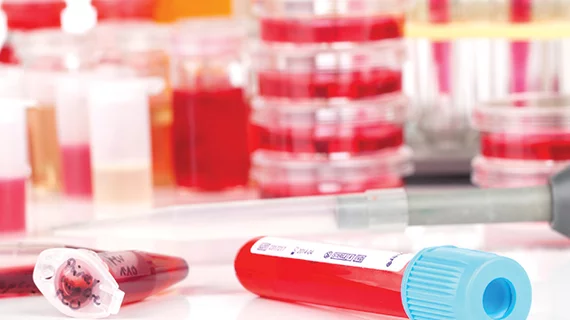Cardiologist sets sights on improving TAVR outcomes
A new study at the University of Cincinnati (UC) aims to find out why some TAVR patients experience clotting issues that can lead to substantial side effects.
Donald Lynch, MD, an assistant professor at the UC College of Medicine and cardiologist for UC Health, is leading the charge. Thanks to a five-year grant worth nearly $900,000, Lynch and colleagues will carry out an observational study of 150 TAVR patients who receive care at one of two facilities. Each patient’s blood will be drawn throughout the process to help the researchers track any factors that may be associated with a poor response to the procedure.
“We are looking at how platelets’ ability to contribute to clot formation are impacted by inflammation associated with endovascular procedures such as TAVR,” Lynch said in a news release. “We hope that these studies will help us understand why some patients have a persistent drop in platelet count which may be associated with excessive bleeding or clotting issues.”
Lynch noted that TAVR has been a huge breakthrough for patients who suffer from a narrowing of the aortic valve—and they can even go home the very next day. But it isn’t always a fit for every patient, and that’s what he wants to explore with his research.
“Most patients do quite well, but there is a subset of patients that may have problems with clotting leading to a stroke or other issues such as bleeding,” he added. “My study will help to determine why some patients may develop these issues and help us to find better ways to reduce this risk.”

